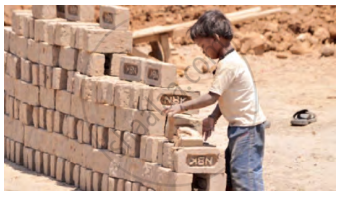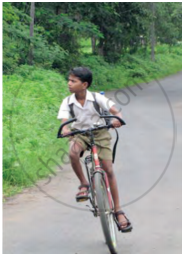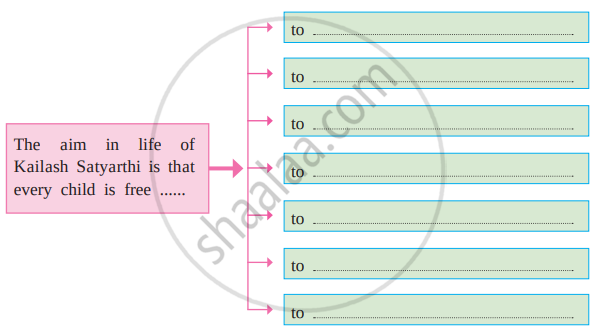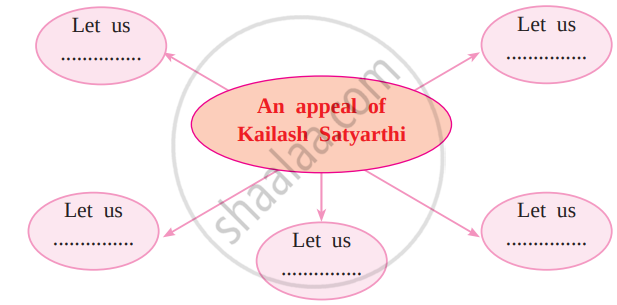Advertisements
Advertisements
प्रश्न
The greatest personalities from the land of Buddha -
उत्तर
The greatest personalities from the land of Buddha - Guru Nanak, Mahatma Gandhi.
APPEARS IN
संबंधित प्रश्न
Observe the pictures and answer.


- Main difference between the two images _______________________.
- Change required _________________________
- Your contribution as a student to help and make a difference to needy children ___________________.
Put a ✓or ×.
A good speech delivered requires the following characteristics.
Well planned and thoughts well-organized.
Put a ✓or ×.
A good speech delivered requires the following characteristics.
Delivered softly and in a low voice.
Put a ✓or ×.
A good speech delivered requires the following characteristics.
Speaker needs not greet the dignitaries and audience.
Put a ✓or ×.
A good speech delivered requires the following characteristics.
Language used should be suitable for the audience.
Put a ✓or ×.
A good speech delivered requires the following characteristics.
The speaker should switch over from one language to another.
Name the following.
The persons to whom Kailash Satyarthi gives the highest credit of his honour - ____________.
Name the following.
The greatest personalities from the land of Buddha - _________________.
Name the following.
So called daughters of Kailash Satyarthi - _________.
Mention the social issues highlighted by Kailash Satyarthi in his speech. One social issue is given to you.
| (a) Child labour | (b) ________________ |
| (c) ________________ | (d) ________________ |
| (e) ________________ | (f) ________________ |
Think and give your own response.
What message does the little bird’s story of the forest fire convey to us? Explain.
Think and give your own response.
Besides the political freedom that our nation enjoys, what other freedom should it strive for? Say why.
Think and give your own response.
What is your impression of the acceptance speech given by Kailash Satyarthi, when he received the Nobel Prize? Write in 3 to 4 sentences.
Think and give your own response.
Name any other social activist who has worked/is working earnestly for child-welfare. Write about his/her activities.
What will you do in the following situation?
If you see a child working in a restaurant.
What will you do in the following situation?
If you find a child working at a construction site.
What will you do in the following situation?
If you find a child working at a brickwork site.
What will you do in the following situation?
If you come across a beggar child.
Write any 2 efforts that you can make to enroll deprived children/ out of school children into a school. One is given to you.
(a) I will persuade parents of such children to send them to school.
(b) _________________________________________________
(c) _________________________________________________
Read the expressions given below and insert them in your notebook in the proper boxes, as shown below:
- Imagine what will happen after ten years.
- I would like to share with you an example from my own experience.
- Hon. chief guest, eminent dignitaries, respected management and staff, student-friends
- The research report says that ______
- I don’t understand why we are so negative about this issue.
- Think again and again and then move forward.
- Today, I would like to put forth my views on ______
- The renowned personality xyz says “______”
- Good Morning, one and all present today.
- I would like to express my gratitude towards the organisers of this function for giving me opportunity ______
- If we think about the situation around us, we notice that ______
- Let me explain this to you ______
| Greeting/ Salutation | Introduction | Body of the speech | Conclusion |
The ‘Daughters’ of Kailash Satyarthi mentioned in his speech -
The foreign activists of equal rights, mentioned in the speech -
Mention the social issues highlighted by Kailash Satyarthi in his speech. One social issue is given for you.
- Child labour
- ____________
- ____________
- ____________
- ____________
Complete the following diagram/chart.

Complete the following web chart.

What will you do in the following situation?
- If you see a child working in a restaurant
- If you find a child working at a construction site
- If you find a child working at a brickwork site
- If you come across a beggar child
Today, it is time for every child to have a right to -
education, _______, _______, _______, _______, _______, _______, _______, _______.
Make a list of Indian Nobel Laureates.
- ____________
- ____________
- ____________
Make a list of prestigious awards in India.
| Civilian Awards | Highest Gallantry Awards |
| (a) Bharat Ratna | (a) Paramveer Chakra |
| (b) | (b) |
| (c) | (c) |
| (d) | (d) |
| (e) | (e) |
Read the passage carefully and complete the activities:
1. Complete the following sentences. (2)
- Let us march from ignorance ______.
- Kailash Satyarthi says that today he sees thousands of ______.
- Close your eyes and feel ______.
- Let us universalise ______.
2. Complete the following web. (2)

|
TODAY, beyond the darkness, I see the smiling faces of our children in the blinking stars. TODAY, in every wave of every ocean, I see my children are playing and dancing. TODAY, in every plant, in every tree, and mountain, I see our children growing freely with dignity. Friends, I want you to see and feel this TODAY inside you. I am sure you can - Now, listen to that child. Listen, please. |
3. Write the noun forms of the following from the passage. (2)
- dark - ______
- exploit - ______
- educate - ______
- ignore - ______
4. Do as directed. (2)
- Let us democratise knowledge. (choose the correct question tag and rewrite the sentence using it)
a) will you?
b) shall we?
c) Isn’t it?
d) wasn’t it? - May I please request you to put your hand close to your heart?
(underline the ‘infinitive’)
5. Personal Response: (2)
What does honourable Kailash Satyarthi suggest us to do?
Read the following passage and do the activities:
B1. Who said to whom? (2)
| Sentence | Who said | To whom | |
| i. | Is the world so poor that it cannot give me a toy and a book? | ||
| ii. | What is my fault? |
|
Twenty years ago, in the foothills of the Himalayas, I met a small, skinny child labourer. He asked me : “Is the world so poor that it cannot give me a toy and a book instead of forcing me to take a gun or a tool?” I met with a Sudanese child soldier. He was kidnapped by an extremist militia. As his first training lesson, he was forced to kill his friends and family. He asked me: “What is my fault?” Friends, all the great religions teach us to care for our children. Jesus said: “Let the children come to me; do not hinder them, for the kingdom of God belongs to them.” The Holy Quran says: “Kill not your children because of poverty.” Friends! There is no greater violence than to deny the dreams of our children. Therefore ... I refuse to accept that all the temples and mosques and churches and prayer houses have no place for the dreams of our children. I refuse to accept that the world is so poor, when just one week of global military expenditure can bring all the children to classrooms. |
B2. Complete the web: (2)

B3. Write the describing words for the following from the passage: (2)
| i. | ____________ | Week |
| ii. | ____________ | Quaran |
| iii. | ____________ | Violence |
| iv. | ____________ | religions |
B4. Do as Directed: (2)
- He asked me, “What is my fault?” (Choose the correct indirect speech from the following)
- He asked me what is his fault.
- He asked me what was his fault.
- He asked me what his fault is.
- He asked me what his fault was.
- He was forced to kill his friends and family.
(Rewrite the sentence and underline the infinitive)
B5. Personal Response: (2)
What will you do if you find a poor and needy child? Explain.
